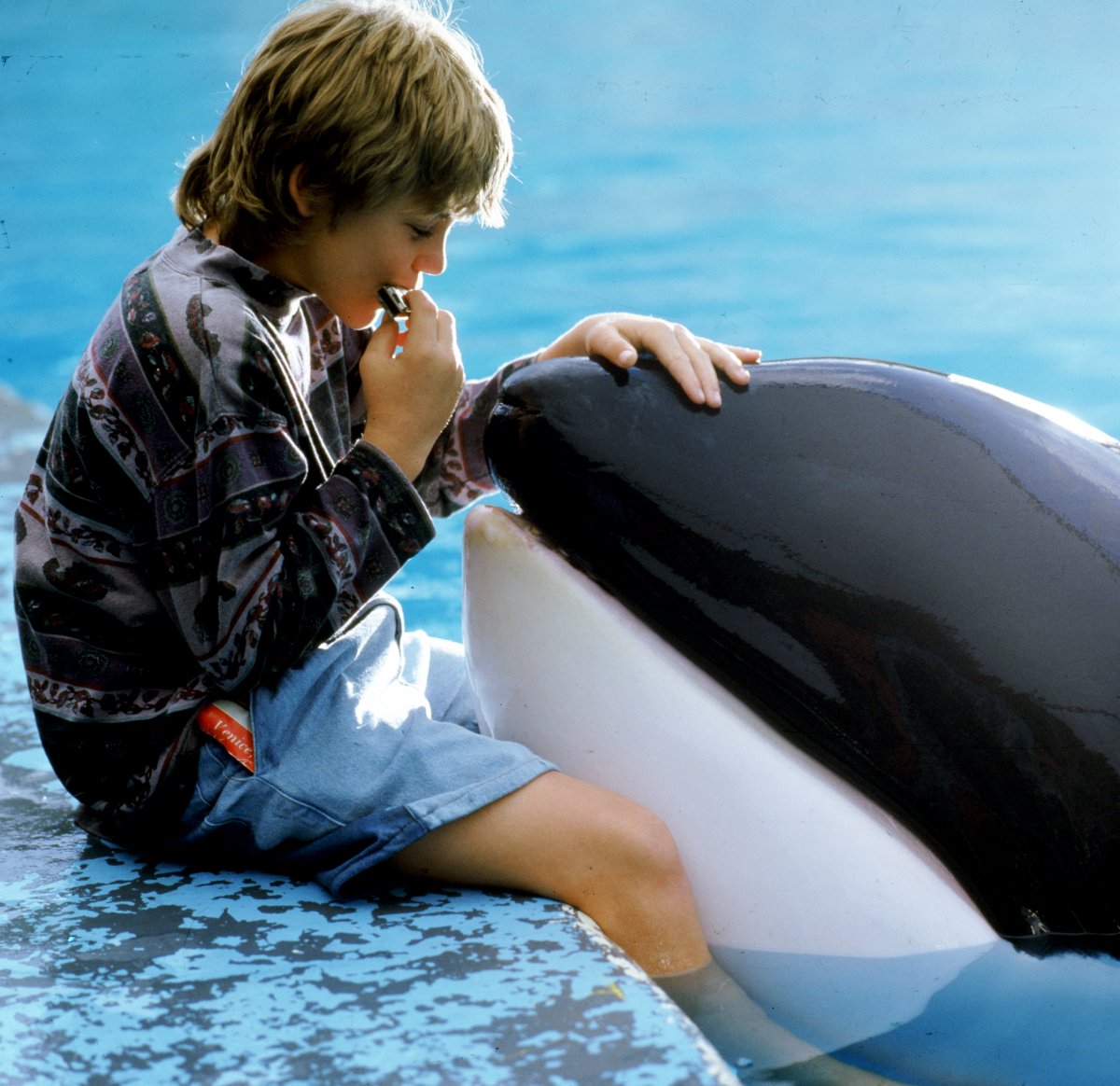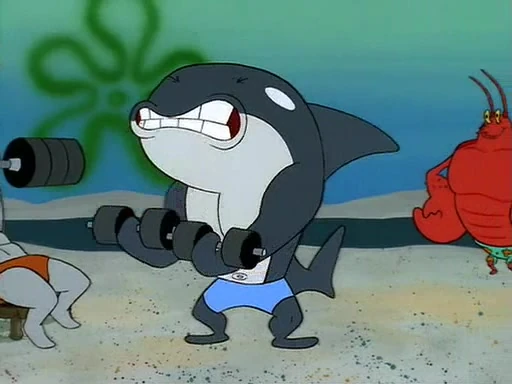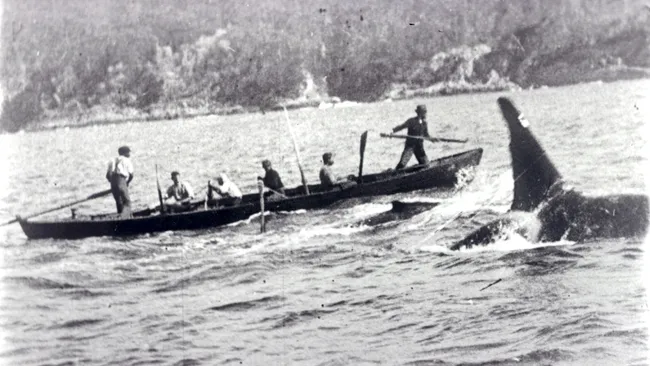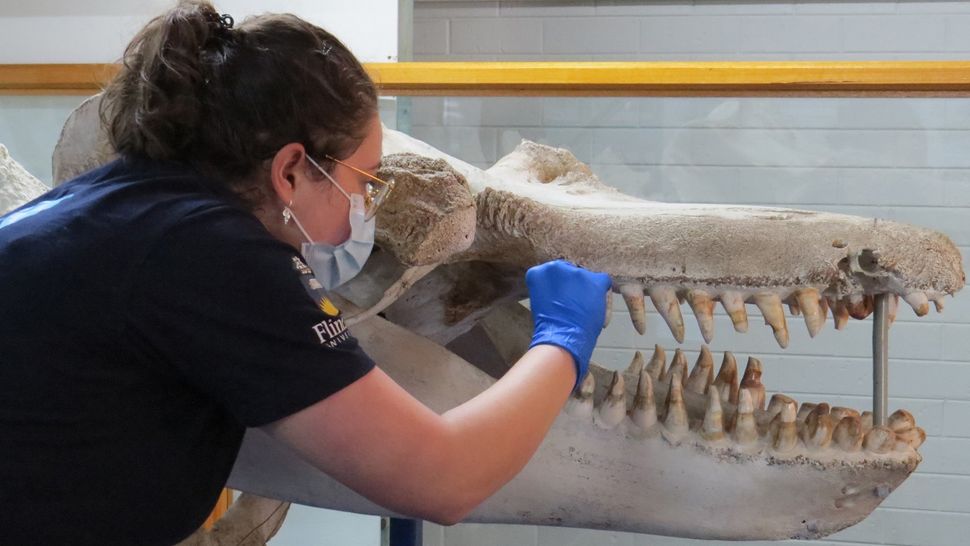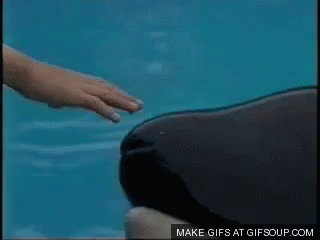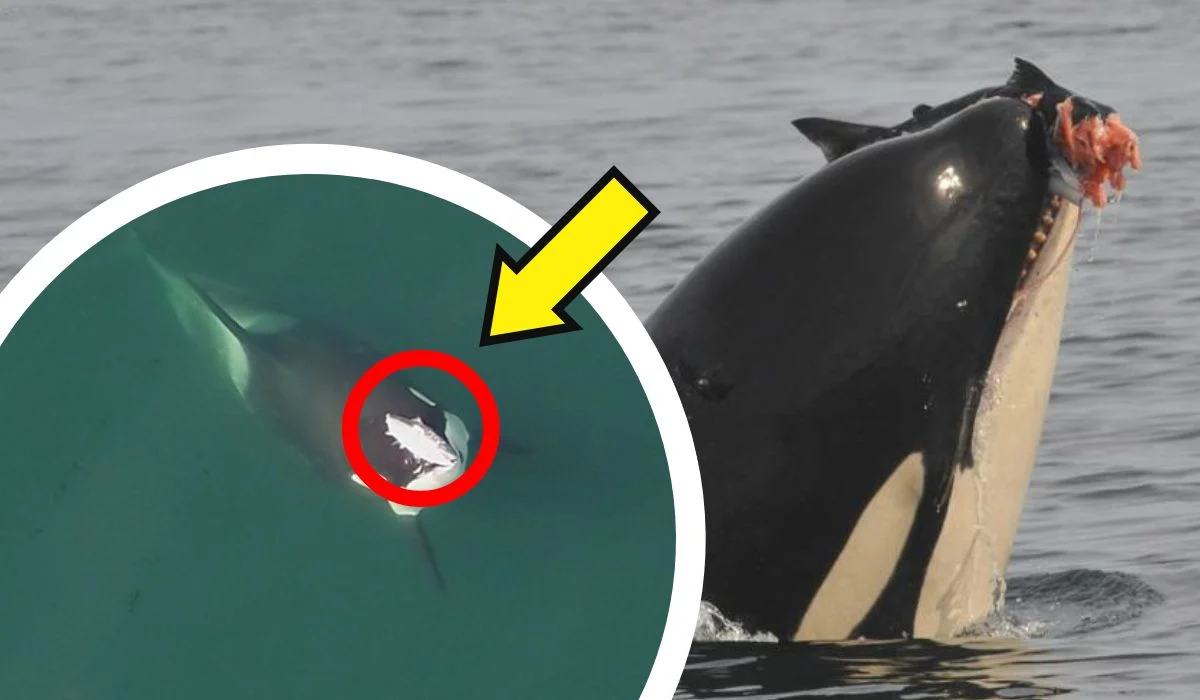- Joined
- Jan 17, 2010
- Messages
- 7,452
- Reaction score
- 9,360
By Patrick Pester
Orcas have their own dialect, greeting ceremonies and even wore salmon as hats in a weird fad during the 1980s.

Orcas are one of the most successful species in the seas, reigning at the top of the food chain in every ocean. And one of the reasons they are so successful is simple: they're really, really clever.
Orcas (Orcinus orca) have rich and distinct social lives and have learned a remarkable variety of hunting strategies to take down everything from blue whales to great white sharks. Here are 10 examples of orca intelligence that prove killer whales are killer smart.
They get caught up in fads
Orcas are social learners and occasionally get caught up in fads — a temporary behavior started by one or two individuals, adopted by others and then swiftly abandoned. For example, a population in the Pacific went through a phase of wearing salmon as hats in the 1980s. The trend started when a female orca began carrying around dead salmon on her head, and in the weeks that followed, the behavior spread to two other pods in the same community.
Researchers spotted the salmon-wearing orcas doing the same behavior the following year and then never saw them carry fish on their heads again, according to a 2004 review of nonhuman culture published in the journal Biological Conservation. Recent orca attacks on boats in Europe may be another example of a killer whale fad.
They engage in "greeting ceremonies"
Killer whales have complicated social rituals and even engage in what researchers call "greeting ceremonies." These interactions are the orca equivalent of a mosh pit, with orcas lining up in two rows and then tumbling together, Smithsonian Magazine reported. During one such event, the greeting coincided with a birth. Three orca pods reunited in the Strait of Juan de Fuca on the boundary between the U.S. and Canada in 2020, and as the orcas whistled and clicked to each other, a pregnant female produced a calf, KUOW, Seattle's National Public Radio news station, reported. The orcas weren't foraging and appeared to be there just to socialize on the day of the birth.

They have distinct dialects
Orcas live in pods based around related mothers and their descendants. Each pod has its own distinctive calls, like different dialects of the same language. The species can learn to mimic new sounds, which may help them form these dialects.
Researchers taught a captive female orca called Wikie to mimic human words like "hello" and "bye-bye," as well as the calls of some other animals. Wikie learned quickly and could reproduce some new sounds on her first attempt.
They employ specialized hunting strategies
Orcas learn highly specialized hunting strategies and pass that knowledge to their offspring. Some killer whales in Argentina beach themselves to snatch seals on the shore, while in Antarctica, other populations create waves to push seals off floating sea ice.
And it's not just seals they learn unique strategies for; killer whales are salmon specialists in parts of the Pacific, beaked whale hunters off Australia and sting-ray snatchers off New Zealand, according to the International Union for Conservation of Nature's (IUCN) Red List.
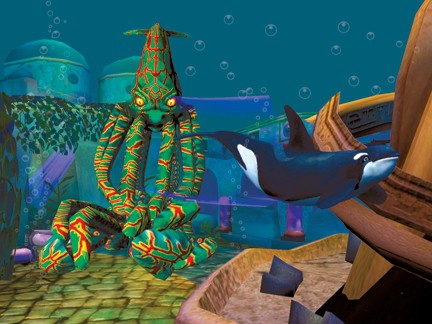
They're picky eaters
Some orca populations seem to have learned that shark livers are particularly rich in nutrients and that it's worth killing sharks and discarding the rest of their carcasses just to get to the nutritious organs. Researchers have documented killer whale populations targeting the livers of a variety of sharks, including attacking great white sharks (Carcharodon carcharias) off South Africa and tearing open whale sharks (Rhincodon typus) off Mexico.
Orcas have their own dialect, greeting ceremonies and even wore salmon as hats in a weird fad during the 1980s.

Orcas are one of the most successful species in the seas, reigning at the top of the food chain in every ocean. And one of the reasons they are so successful is simple: they're really, really clever.
Orcas (Orcinus orca) have rich and distinct social lives and have learned a remarkable variety of hunting strategies to take down everything from blue whales to great white sharks. Here are 10 examples of orca intelligence that prove killer whales are killer smart.
They get caught up in fads
Orcas are social learners and occasionally get caught up in fads — a temporary behavior started by one or two individuals, adopted by others and then swiftly abandoned. For example, a population in the Pacific went through a phase of wearing salmon as hats in the 1980s. The trend started when a female orca began carrying around dead salmon on her head, and in the weeks that followed, the behavior spread to two other pods in the same community.
Researchers spotted the salmon-wearing orcas doing the same behavior the following year and then never saw them carry fish on their heads again, according to a 2004 review of nonhuman culture published in the journal Biological Conservation. Recent orca attacks on boats in Europe may be another example of a killer whale fad.
They engage in "greeting ceremonies"
Killer whales have complicated social rituals and even engage in what researchers call "greeting ceremonies." These interactions are the orca equivalent of a mosh pit, with orcas lining up in two rows and then tumbling together, Smithsonian Magazine reported. During one such event, the greeting coincided with a birth. Three orca pods reunited in the Strait of Juan de Fuca on the boundary between the U.S. and Canada in 2020, and as the orcas whistled and clicked to each other, a pregnant female produced a calf, KUOW, Seattle's National Public Radio news station, reported. The orcas weren't foraging and appeared to be there just to socialize on the day of the birth.

They have distinct dialects
Orcas live in pods based around related mothers and their descendants. Each pod has its own distinctive calls, like different dialects of the same language. The species can learn to mimic new sounds, which may help them form these dialects.
Researchers taught a captive female orca called Wikie to mimic human words like "hello" and "bye-bye," as well as the calls of some other animals. Wikie learned quickly and could reproduce some new sounds on her first attempt.
They employ specialized hunting strategies
Orcas learn highly specialized hunting strategies and pass that knowledge to their offspring. Some killer whales in Argentina beach themselves to snatch seals on the shore, while in Antarctica, other populations create waves to push seals off floating sea ice.
And it's not just seals they learn unique strategies for; killer whales are salmon specialists in parts of the Pacific, beaked whale hunters off Australia and sting-ray snatchers off New Zealand, according to the International Union for Conservation of Nature's (IUCN) Red List.

They're picky eaters
Some orca populations seem to have learned that shark livers are particularly rich in nutrients and that it's worth killing sharks and discarding the rest of their carcasses just to get to the nutritious organs. Researchers have documented killer whale populations targeting the livers of a variety of sharks, including attacking great white sharks (Carcharodon carcharias) off South Africa and tearing open whale sharks (Rhincodon typus) off Mexico.


